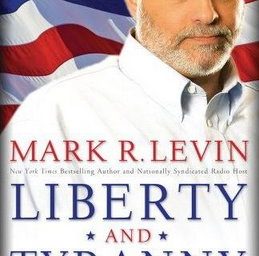Germany’s Lessons for Iraq
Michael Greve explains that the political mess following Germany’s recent election is a bad omen for Iraq.
Germany’s Bad Example for Iraq (OpinionJoural)
Proportional representation–PR–is said to be more democratic, inclusive and respectful of minorities than British-American winner-take-all, first-past-the-post elections. Unfortunately, it does nothing to foster clear majorities capable of effective government.
Germany’s system of almost pure PR has consistently produced coalition governments and now, for the first time, a situation in which no party constellation can produce a government with a coherent program for much-needed reforms. Prime Minister Margaret Thatcher’s reform of Britain’s sclerotic economy wouldn’t have been possible with PR and cooperative federalism; nor could one imagine Prime Minister Junichiro Koizumi accomplishing anything similar in Japan.
The more subtle but ultimately more insidious problem is that PR–unless balanced by plebiscitary institutions such as a directly elected, powerful executive–tends to be constitutionally unstable. Instead of institutional checks and balances, PR constitutions resemble temporary peace pacts among contending interests, classes or warlords. The structure is only as stable as the underlying constellation of forces; or it is stabilized by nonpolitical means.
That’s the function of Germany’s cherished social welfare state: reducing political competition to promises of transfer payments, and compressing the range and intensity of social and political conflict. That sort of stability translates into economic malaise, political indecision and fears of much worse down the road. Germany’s “cooperative” federalism reflects the same disposition and tendencies. To ensure fairness and “solidarity” between levels of government and among the Länder (states), Germany mandates comprehensive revenue-sharing and complex fiscal transfers, from the federal to state and local governments and from rich to poor states.
[…]
Fast forward, or rather backward, to Iraq, whose National Assembly was elected, under U.N. and American pressure, on a PR basis. A just-proposed election law envisions a slightly modified system of party lists and PR. (At least every third delegate must be a woman.) The proposed constitution puts a hydra-headed executive at the mercy of the parliament.
While the federalism arrangements are still in flux, the proposed document promises a thoroughly cooperative regime, with the “fair distribution” of federal offices (including foreign missions); of international aid, grants, and loans; of oil and gas revenues; and of a “fair share” of other federal revenues. In conflicts between regional and federal law, regional law shall prevail–thus providing potent incentives to extort fiscal transfers. This construct is at best a state of (hopefully) suspended civil war. A constitution, it is not.
To appreciate the difference, consider the U. S. Constitution. Without proportional representation, we have a stable two-party system. We have an independently elected executive, no “fiscal constitution” and (aside from the Nixon administration’s ill-fated experiment) no general revenue sharing. Instead, we have independent taxing authority and competition, subject to only minor constitutional provisos. The states do not owe each other much beyond keeping each other’s borders inviolate and their own borders open. Within those ground rules, they may and must compete.
In short, the U.S. Constitution is not a peace pact among interests or an attempt to entrench a social balance. It establishes rival institutions with the means and the motives to resist one another, in the hope that counteracting ambitions will keep the outcomes within bounds. The system, to be sure, produces lots of friction and wheel-spinning–but it is also capable of energy and decision when needed. We do not owe the stability of our political institutions to economic forces or temporary social alignments. American politics is constitutionally stable.
Greve’s points are well taken. Moreover, Germany’s system is not really “pure” PR at all, having substantial systemic measures in place to preclude the tiniest parties from getting any power.
It is worth noting, though, that even with the obstacles created by its constitutional structure, Germany managed to thrive for decades. Only in the last few years, with an aging population and the absorption of Communist East Germany, that it has had major problems. Most of those, though, came from public policy decisions–a bloated welfare system and a government-labor relationship that makes structural reform difficult—not systemic flaws.




